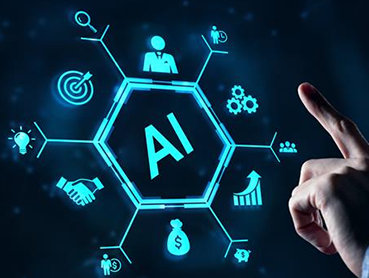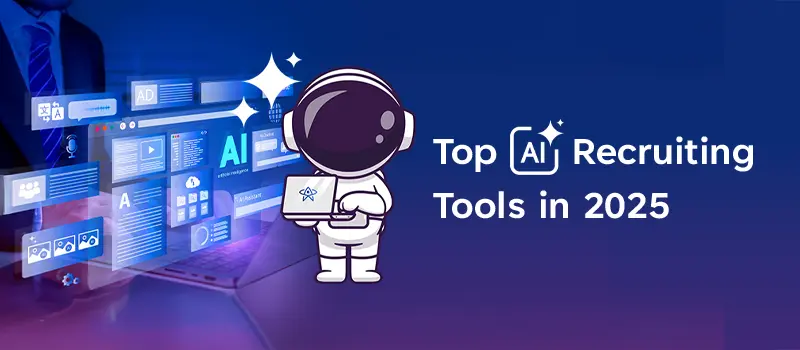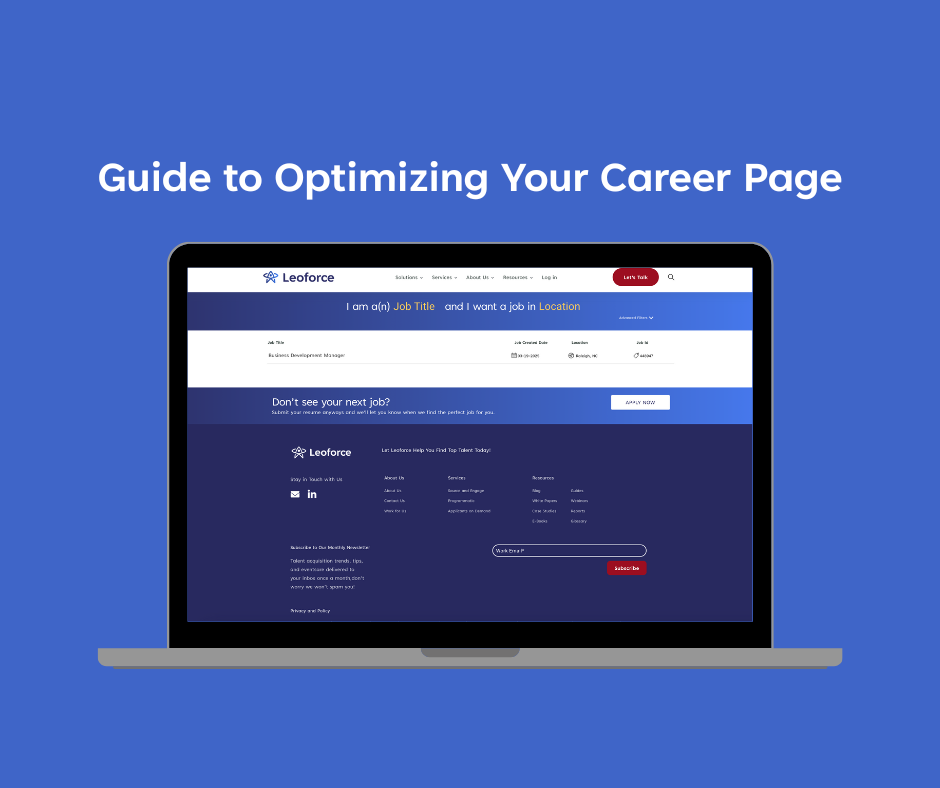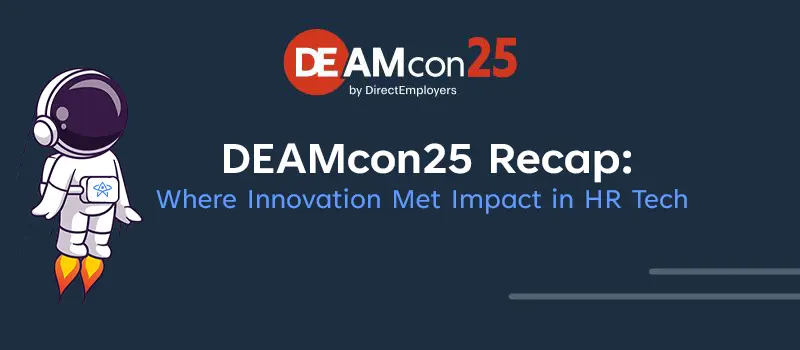The Future of Hiring: Top 10 Talent Acquisition Trends in 2024

In the landscape of talent acquisition, the pivotal year of 2024, fueled by the rising influence of tech-savvy GenZ employees, is witnessing a transformative shift. Organizations, recognizing the strategic importance of prioritizing skills over experience, are embracing AI-based and Generative AI-driven recruitment strategies.
The Employ INC’s 2023 Recruiter Nation Report indicates that 59% of HR decision-makers are preparing to elevate their investments in AI, underlining a collective anticipation for a paradigm shift in recruitment dynamics.
This article unravels the intricacies of talent acquisition trends in 2024. It also delves into the interplay of human expertise and artificial intelligence, exploring the 2024 talent strategies that will reshape recruitment scenarios. With a focus on talent acquisition trends, we analyze the fusion of AI, Generative AI, and recruitment methodologies. Know how organizations can align their talent acquisition goals for 2024 with the evolving needs of the workforce.
Trend 1: Data-Driven Recruiting and Hiring Strategies
Data analytics is revolutionizing how organizations approach talent acquisition, increasingly relying on AI-based real-time analytics for smarter, faster, and more efficient decision-making. Artificial intelligence transcends manual recruiting tasks, ushering in an era of analytics in recruitment and data-driven strategies.
Recruitment teams, driven by data-driven strategies, employ a spectrum of hiring metrics to proactively track the recruitment process’s success. This departure from the reactive approach eliminates guesswork and biases, ensuring the informed selection of the most suitable candidates for each role. This shift towards proactivity marks a pivotal moment where hiring metrics and analytics in recruitment steer decisions.
AI recruiting software, exemplified by Leoforce by Leoforce, presents recruiters with a streamlined, data-driven approach. The convergence of AI and analytics provides actionable insights, analyzing real-time data and critical hiring metrics—such as time to fill, sourcing effectiveness, and offer acceptance rate—ensuring a competitive edge in the talent acquisition landscape.
Trend 2: Candidate Engagement and Conversion Optimization
As the recruitment landscape evolves, candidate engagement and conversion optimization emerge as pivotal elements in successful talent acquisition strategies. Nurturing the candidate journey, from initial contact to hiring, demands a strategic fusion of AI technology and a personalized human touch.
AI assumes a cruicial role in tailoring interactions with candidates. Automated engagement platforms, driven by machine learning algorithms, analyze candidate preferences and behavior, facilitating recruiters in delivering a personalized experience. Whether through targeted emails, chatbot interactions, or video messages, AI enhances the outreach process in recruitment, utilizing various means to foster a meaningful connection with potential hires.
Moreover, conversion optimization takes center stage as organizations refine their recruitment funnels. AI-driven tools, exemplified by Leoforce by Leoforce, aid recruiters in streamlining the conversion process. By analyzing candidate responses and optimizing communication strategies, these tools contribute to a seamless transition in the recruitment funnel. Understanding the candidate’s journey becomes crucial for informed decision-making, ensuring a smooth progression from initial interest to successful recruitment.
Trend 3: Internal Mobility and Employee Retention Emphasis
Organizations are increasingly recognizing the advantages of internal talent development. Real-world case studies underscore the effectiveness of internal mobility programs, with companies prioritizing internal talent development reporting elevated employee satisfaction, reduced turnover, and enhanced organizational performance.
Internal mobility programs not only foster a culture of internal growth and development but also ensure a consistent influx of qualified individuals. The strategic integration of AI in these programs streamlines the identification of potential career paths, achieving a harmonious blend of employee aspirations with organizational needs.
AI-driven platforms, exemplified by Leoforce by Leoforce, facilitate the seamless identification of employees’ skills, competencies, and growth potential. Leveraging machine learning algorithms, AI technology empowers employers to match internal talents with relevant opportunities, cultivating a culture of continuous learning and development.
As highlighted earlier in this article, recruiters and organizations are transcending reactive hiring practices. With the support of AI, they proactively cultivate talent pipelines well in advance, fostering agility and responsiveness to evolving business demands. This strategic approach aligns with internal mobility, employee retention, and effective talent management goals.
Trend 4: Engagement Programs for Company Culture Improvement
A positive workplace environment is directly related to successful talent retention. 2024 is likely to focus on talent engagement programs promoting company culture. From team-building activities and wellness initiatives to mentorship programs and recognition schemes, the impact of engagement programs extends beyond surface-level perks; they play a crucial role in shaping company culture and influencing employee morale.
Engagement programs serve as a catalyst for building meaningful connections among team members, overcoming geographical barriers in an increasingly remote-friendly work environment. They contribute to a sense of belonging, which is vital for employee satisfaction and long-term commitment to the organization.
Trend 5: Focus on Employee Well-Being and Work-Life Balance
Organizations are recognizing that employee well-being extends beyond a traditional benefits package. Companies are proactively implementing strategies to create a healthy work environment that nurtures physical health, mental well-being, promotes work-life balance and a offers sense of fulfillment in employees’ professional lives.
In this transformative era, organizations are adopting flexible work arrangements, embracing remote work options, and introducing policies that encourage employees to unplug during non-working hours. The goal is to establish a supportive ecosystem that values the holistic well-being of individuals, recognizing that a balanced life contributes to enhanced creativity, productivity, and job satisfaction.
Trend 6: Remote and Hybrid Work Models
In 2024, the shift towards remote and hybrid work models is more than a response to external factors—it’s a deliberate choice shaping the future of talent acquisition. As organizations continue to work on talent pool expansion, they must reevaluate their approaches to work. Those embracing the possibilities of remote hiring and hybrid workforces are poised to attract, engage, and retain top-tier talent in this evolving professional landscape.
Trend 7: AI and Automation in Recruitment
In 2024, AI and Automated recruiting practices will be at the forefront of revolutionizing how organizations identify and match candidates with the right opportunities. AI in recruitment is a powerful tool that facilitates intelligent decision-making throughout the hiring journey.
Automated screening processes powered by AI algorithms enable organizations to sift through vast pools of candidates swiftly. This not only expedites the initial phases of recruitment but also ensures a more comprehensive and unbiased evaluation of potential hires.
One of the standout features of AI in recruitment is its ability to perform intelligent talent matching. By analyzing not just explicit skills and qualifications but also contextual factors, AI-driven systems like Leoforce by Leoforce excel in connecting organizations with candidates who not only meet the technical requirements but also align with the cultural and contextual nuances of the workplace.
With a talent database encompassing over 850 million candidates across various domains, Leoforce transforms the recruitment landscape by offering actionable insights derived from real-time data and metrics. These statistics underline the invaluable role Leoforce plays in driving efficiency and success in the talent acquisition journey.
Trend 8: Diversity, Equity, and Inclusion Initiatives
Inclusive recruitment strategies are gaining prominence, steering away from traditional approaches to ensure fair representation across different demographics. DEI in hiring is a number one priority for organizations today. Hiring teams are leveraging data analytics and AI-driven tools to identify and eliminate biases from the recruitment process, creating a level playing field for candidates of varied backgrounds.
Leoforce by Leoforce offers a built-in diversity feature designed to reduce instances of unconscious bias. This feature enables organizations to align their recruitment practices with DEI goals, fostering an equitable hiring process and promoting workplace diversity.
Trend 9: Employer Branding and Employee Value Proposition (EVP)
Employer branding and employee value propositioning are interconnected elements that play a crucial role in shaping how organizations are perceived by potential candidates. As the talent landscape evolves, employer branding and EVP emerge as indispensable tools for organizations aiming to stand out in the competitive race for talent. In 2024, crafting a compelling narrative and offering a unique value proposition will become indispensable approaches for successful recruitment strategies.
Trend 10: Skills-Based and Competency-Based Hiring
Data from platforms like LinkedIn reveals that recruiters now search for candidates based on their skills 5 times more frequently than by their degrees. Moreover, the share of job postings on LinkedIn that don’t require a professional degree witnessed a significant increase.
AI plays a pivotal role in parsing resumes and identifying candidates based on their specific capabilities and transferable skills. Platforms like Leoforce by Leoforce leverage AI to analyze resumes for relevant skills, enabling organizations to pinpoint candidates who possess the essential competencies needed for success. This nuanced approach ensures that talent acquisition is aligned with the dynamic demands of the business, focusing on what candidates can contribute rather than merely where they have been.
Embracing the future of talent acquisition requires a focus on strategic hiring, aligning recruitment strategies with the emerging trends. The recruitment evolution is not merely an option but a necessity in this dynamic hiring landscape. As we reflect on talent acquisition in 2024, it is evident that strategic hiring, powered by analytics, AI, and automation will ensure successful recruiting. The convergence of skills-based recruitment, DEI initiatives, and employer branding are likely to reshape the recruitment landscape.
The call to action is clear – adapt and innovate. Organizations as well as recruiters who embrace these trends will be able to position themselves at the forefront of impactful and efficient strategic hiring.





